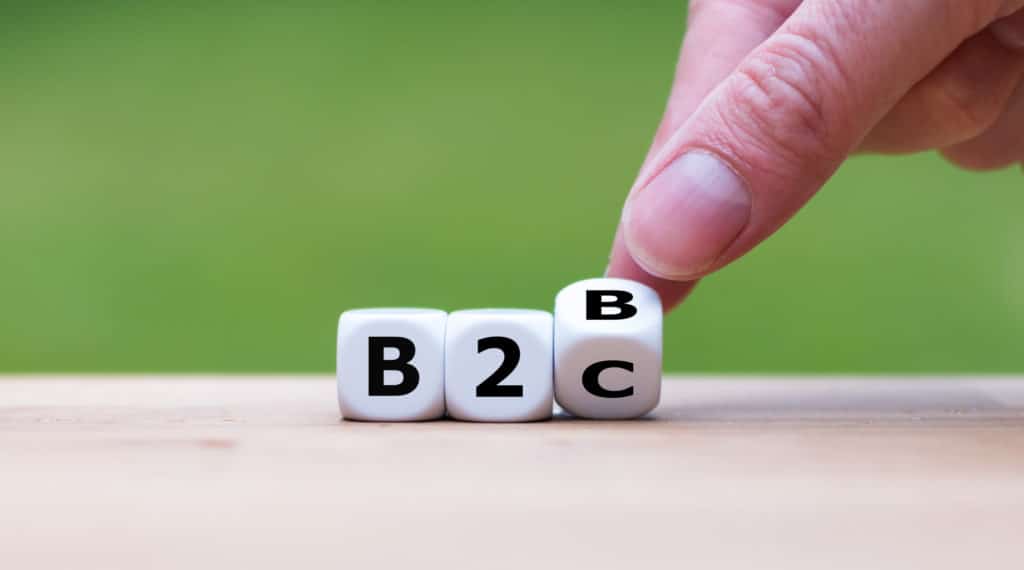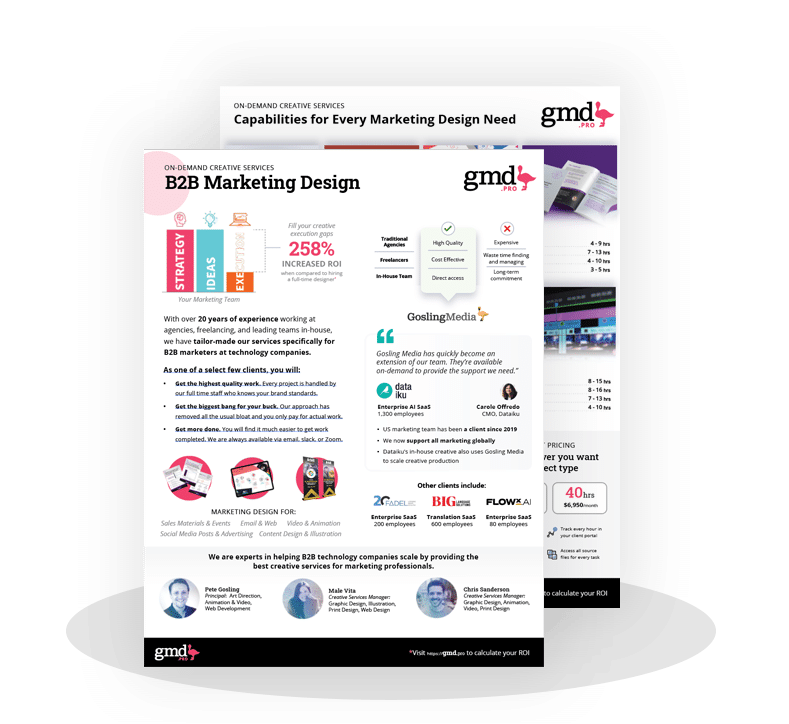What if you were marketing your business the wrong way and didn’t even know it?
There are vast differences between various types of marketing. For example, there are serious differences between B2B and B2C marketing. If you don’t understand those differences, you won’t be able to make the most of your own marketing.
Fortunately, nobody understands these different marketing styles like a creator. Here, then, are the differences between B2B and B2C marketing from a creator’s perspective.
Audience Is Everything
One thing creators quickly discover is that there is a lot of common ground between B2B and B2C marketing. The major differences are usually in the details.
For example, both forms of marketing are highly audience-driven. If you don’t understand your audience, you won’t be able to market to them. However, the actual audiences are quite different.
With B2B marketing, you only have to win over a handful of people. While the actual buying cycle is more complex (more on this later), your marketing primarily caters to people like CIOs, information officers, and managers.
With B2C marketing, you’re basically marketing yourself to the masses. While you can select a specific demographic (such as young parents), you’re still crafting a message intended for thousands of people. You must take care to ensure your B2C marketing is as persuasive to as many of them as possible.
Emotion vs Stats
Just as the audiences are quite different for B2B and B2C, so are their priorities. In Star Trek terms, one group is more like Mr. Spock and the other group is more like Dr. McCoy.
The B2B audience is most definitely Spock. They care about logic above all else. Marketing to this group involves telling them about the different features and benefits of a product and how it will specifically help their organization.
In B2B marketing, emotions are rarely part of the mix. Instead, it’s all about convincing this group that your business can provide the right tools for the right job.
The B2C audience is Dr. McCoy because emotions are very important to them. They still want to know about features and benefits, but good B2C marketing places special emphasis on how a product will make them feel.
Over time, the B2C audience may not remember every specific feature of your products. They will, however, remember how the products and marketing made them feel.
The ROI Factor
Now that you know B2B audiences are very logic-driven, it should be no surprise that they intensely focus on ROI. No matter how great your features and benefits sound, they want to know how you are going to boost their bottom line in a tangible way.
Accordingly, good B2B marketing is very data-driven. This group wants plenty of research and hard numbers to inform their decision-making process.
B2C audiences are, once again, more driven by emotion. They may buy something for its sheer entertainment value, and they’ll consider that entertainment to be a fine “return on investment.” They may also be driven by special deals, ranging from Amazon’s “lightning deals” to the “impulse buy” section of their local supermarket.
Marketing Narrative
Growing up, you probably heard that how you say something is just as important as what you say. And this particular wisdom certainly extends to the differences between B2B and B2C marketing.
B2C audiences care more about a storytelling approach to marketing. This approach helps them envision themselves using the product and visualizing how happy the product will make them.
And happiness is the main driving factor behind emotional B2C marketing. Consumers don’t just want their story: they want a “happily ever after” as well.
B2B audiences care less about emotional storytelling. In a word, they prefer marketing that is educational.
What To Do vs What They Can Do
What actually drives your standard B2B audience? They are largely driven by a sense of duty and obligation.
While the actual B2B audience may be very small, each one of them is keenly aware they are making decisions that will affect the entire organization. Because of this, they prefer educational content marketing that tells them exactly how to use this particular product.
B2C customers are a bit more “romantic” in their buying needs. They are less interested in being told what to do with a product than being told they can do anything with it.
Furthermore, B2C audiences respond to marketing that understands their languages and values. They are likelier to make a purchase based on such marketing, even if the marketing says very little about the product.
As an example of the latter, just look at the sheer number of Super Bowl ads that focus more on humor and less on the product!
Credentials vs Problem-Solving
The classic marketing dilemma comes down to trust. Your audience knows that you’re trying to sell them something. Your job, then, is to build their trust so they are likelier to do something.
With B2B audiences, this is fairly simple. They mostly want to hear about your credentials and your experience. If you have enough experience in a relevant field, they will be inclined to trust what you tell them.
B2C audiences are driven more by the “what can you do for me?” question. They want to see very quickly that your product can solve their problems (even if they didn’t know about the problem until they saw your marketing).
When B2C audiences believe you can improve their lives, they will pay more attention to your marketing.
The Complexity of the Buying Cycle
The last difference between B2B and B2C marketing is pretty simple. Here it is: the actual buying cycle is longer with B2B than B2C.
Even though your B2B audience is typically small, members of that audience usually represent several divisions within a business. You must prepare for a longer buying cycle because you must wait for those different divisions to sign off on the purchase.
With B2C, the buying cycle is very short. There is very little gap between the decision to purchase and the act of purchasing thanks to the power of emotional marketing.
Differences Between B2B and B2C: The Final Word
Now you know about the differences between B2B and B2C marketing. But do you know who can help you make the most out of your own marketing?
As marketing consultants, we help businesses of any size reach their maximum potential. To see what we can do for your business, contact us today!







